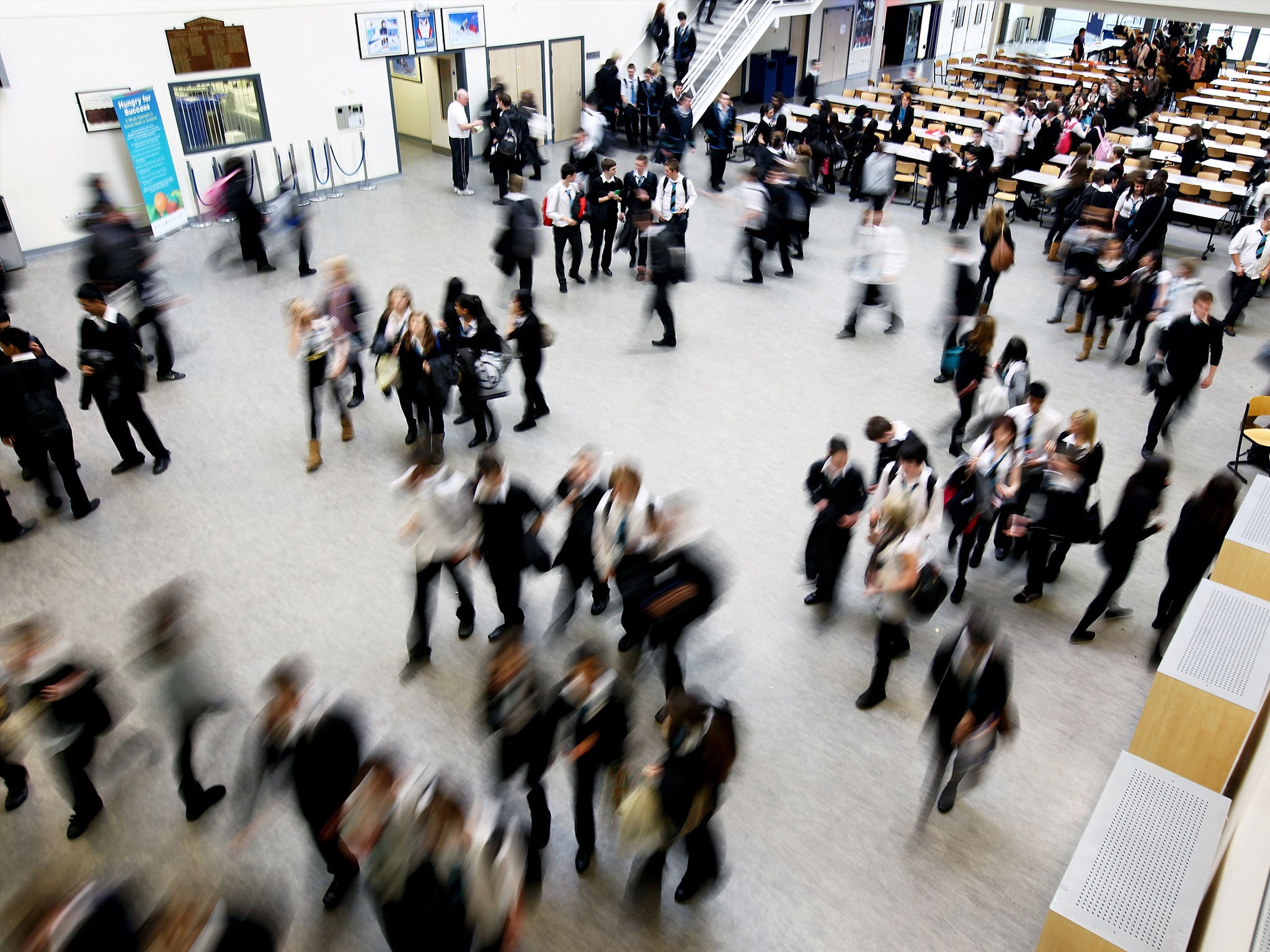One in five teachers say nothing would make them work in disadvantaged school, survey suggests
Staff in most deprived schools say recruitment issues affect quality of education, report finds

Your support helps us to tell the story
From reproductive rights to climate change to Big Tech, The Independent is on the ground when the story is developing. Whether it's investigating the financials of Elon Musk's pro-Trump PAC or producing our latest documentary, 'The A Word', which shines a light on the American women fighting for reproductive rights, we know how important it is to parse out the facts from the messaging.
At such a critical moment in US history, we need reporters on the ground. Your donation allows us to keep sending journalists to speak to both sides of the story.
The Independent is trusted by Americans across the entire political spectrum. And unlike many other quality news outlets, we choose not to lock Americans out of our reporting and analysis with paywalls. We believe quality journalism should be available to everyone, paid for by those who can afford it.
Your support makes all the difference.One in five teachers said nothing would persuade them to apply for a job at a low-performing disadvantaged school, research says.
State schools in deprived areas are more likely to struggle to fill teacher vacancies which has a knock-on effect on the quality of teaching that pupils receive, a report from Sutton Trust suggests.
More than four in five (85 per cent) of teachers in the most disadvantaged state schools say recruitment issues are affecting the education quality in their school, compared to just 55 per cent of teachers in private secondary schools, according to report.
Nearly three in five (58 per cent) of teachers in schools with high numbers of disadvantaged pupils say they are uncertain about the school’s ability to find suitable teachers, compared to 11 per cent of teachers in private schools, the survey shows.
And for a fifth of teachers, nothing would induce them to apply for a job in a local school that serves an educationally disengaged community which has been recently placed in “special measures”.
However, more than half (54 per cent) would apply if there was an effective behaviour policy and 49 per cent said they would be attracted by a substantial promotion with a higher salary.
The research, by Professor Becky Allen for the Sutton Trust, warns that schools serving more disadvantaged communities will be disproportionately affected if teacher shortages continue to rise.
Schools in deprived areas should use pupil premium funding – cash awarded to help disadvantaged pupils - to prioritise the recruitment and retention of good teachers, the charity says.
There should also be increased support to schools to address behaviour concerns, the report adds.
Professor Allen said: “Our research clearly shows that where a government allows teacher shortages to rise, whether through pay restraint policies, tuition fees on teacher training or as a consequence of high graduate employment, these shortages will disproportionately pool in schools that serve more disadvantaged communities.
“Unless these teacher shortages are resolved, inequalities in access to suitably qualified teachers will continue to increase.”
Sir Peter Lampl, founder and executive chairman of the Sutton Trust, said: “Recruiting and retaining top-quality teachers is the biggest challenge our schools face.
"And, as our research shows, it is disadvantaged schools that are most affected by the lack of high-quality teachers.”
Geoff Barton, general secretary of the Association of School and College Leaders, said: “Teacher recruitment and retention crisis is most sharply felt in schools serving disadvantaged communities thus making it more difficult to raise educational standards and close the social divide.
“One thing that the government could do immediately to tackle this issue is to review an accountability system which often stigmatises these schools and makes it more difficult to recruit and retain teachers and leaders.
“School performance tables use measures that effectively penalise schools in disadvantaged communities, and the inspection system judges struggling schools with the blunt label of ‘inadequate’ which inevitably makes recruitment and improvement much harder to achieve.
“We need a system in which teachers and leaders aspire to work in schools serving disadvantaged communities and a good start would be to put an end to the language of failure.”
A Department for Education spokesperson said: “The education secretary has been clear that there are no great schools without great teachers, which is why it is his top priority is to make sure teaching remains an attractive and fulfilling profession."
They added: "But we know that poor behaviour damages teachers’ morale and increases workload and stress and that’s why we want schools to instil cultures of good behaviour from top to bottom.
"We also want standards to rise quickly, which is why we are challenging under-performance wherever it is found through sponsored academies.”
Join our commenting forum
Join thought-provoking conversations, follow other Independent readers and see their replies
Comments